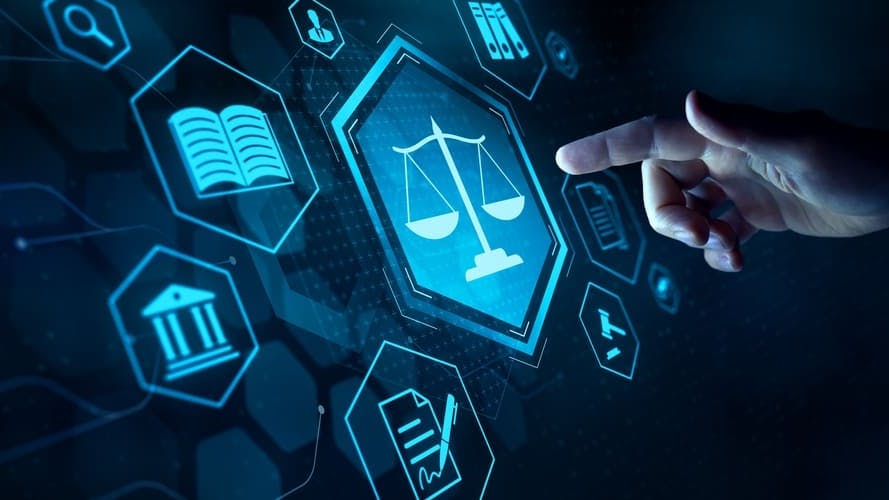In this context, the role of regulation becomes a crucial debate: Does it stifle innovation or provide vital safeguards?
The recent US election has further amplified this discussion. With a new administration promising a less regulated tech landscape, contrasting approaches between the US and EU highlight the complexities of navigating this evolving terrain.
The US: A Pendulum Swing Towards Deregulation
The US approach to tech regulation has been characterised by a patchwork of state-level regulations, with California leading the way. Laws like the California Consumer Privacy Act (CCPA) and the California Privacy Rights Act (CPRA) grant consumers greater control over their personal data, paving the way for similar legislation in other states. At the federal level, discussions surrounding a comprehensive data privacy law are ongoing, aiming to establish nationwide standards for data protection.
Simultaneously, antitrust scrutiny of major tech companies has intensified, with ongoing investigations and proposed legislation aimed at curbing anti-competitive practices and promoting a more level playing field in the digital marketplace.
However, the incoming US administration has signaled a potential shift in this landscape, pledging to roll back tech regulations. This deregulatory approach has garnered support from some tech executives who view regulation as a barrier to innovation and global competitiveness. They argue that reducing regulatory burdens will allow US companies to thrive in the rapidly evolving tech landscape.
This shift raises concerns about the potential consequences of reduced oversight. Experts worry that a less regulated environment could amplify the risks associated with AI, particularly in areas like deepfakes, misinformation, and algorithmic bias. These concerns highlight the delicate balance between fostering innovation and safeguarding against the potential harms of emerging technologies.
The EU: A More Proactive Stance
The EU has taken a more proactive stance on tech regulation, establishing a comprehensive framework of laws addressing data privacy, antitrust issues, and AI safety. This proactive approach aims to protect consumers, promote competition, and mitigate the potential harms of emerging technologies. The General Data Protection Regulation (GDPR), for instance, has set a global standard for data privacy, granting individuals significant rights over their personal data and how it's used by companies.
Further strengthening its regulatory framework, the EU has also implemented the Digital Markets Act (DMA). This legislation aims to curb the power of large online platforms, often referred to as "gatekeepers," ensuring fair competition and preventing anti-competitive behavior that could stifle innovation and harm consumers.
Looking ahead, the EU is at the forefront of AI regulation with the proposed Artificial Intelligence Act (AI Act). This act categorises AI systems based on risk, imposing strict requirements for high-risk applications, particularly those used in critical infrastructure, healthcare, and law enforcement.
While these regulations provide important safeguards, they haven't escaped criticism. Some argue that this complex web of regulations could stifle innovation and hinder the growth of European tech companies.
The compliance burden can be particularly challenging for smaller businesses, potentially creating an unintentional advantage for larger, more established players. This debate highlights the ongoing tension between fostering innovation and ensuring responsible tech development within a robust regulatory framework.
The Innovation Dilemma: A Balancing Act
The tension between fostering innovation and ensuring responsible tech development is a delicate balancing act. While excessive regulation can create barriers to entry and hinder entrepreneurial spirit, a complete lack of oversight can lead to unintended consequences with far-reaching societal impacts.
The challenge lies in finding the right balance:
- Targeted regulations: Focusing on specific areas of concern, such as AI safety and data privacy, rather than imposing blanket restrictions on the entire industry.
- Flexibility and adaptability: Creating regulations that can adapt to the rapid pace of technological change, fostering innovation while mitigating potential harms.
- International collaboration: Promoting dialogue and cooperation between governments and tech companies to develop global standards and ensure responsible tech development.
The Road Ahead
As we navigate the complexities of the digital age, the debate on tech regulation will continue to evolve. Finding the right balance between innovation and responsibility is crucial for ensuring a future where technology serves humanity and strengthens democratic values.
The contrasting approaches of the US and EU offer valuable insights into the challenges and opportunities that lie ahead. By learning from each other's experiences and engaging in open dialogue, we can create a regulatory framework that fosters innovation while safeguarding our collective well-being.
